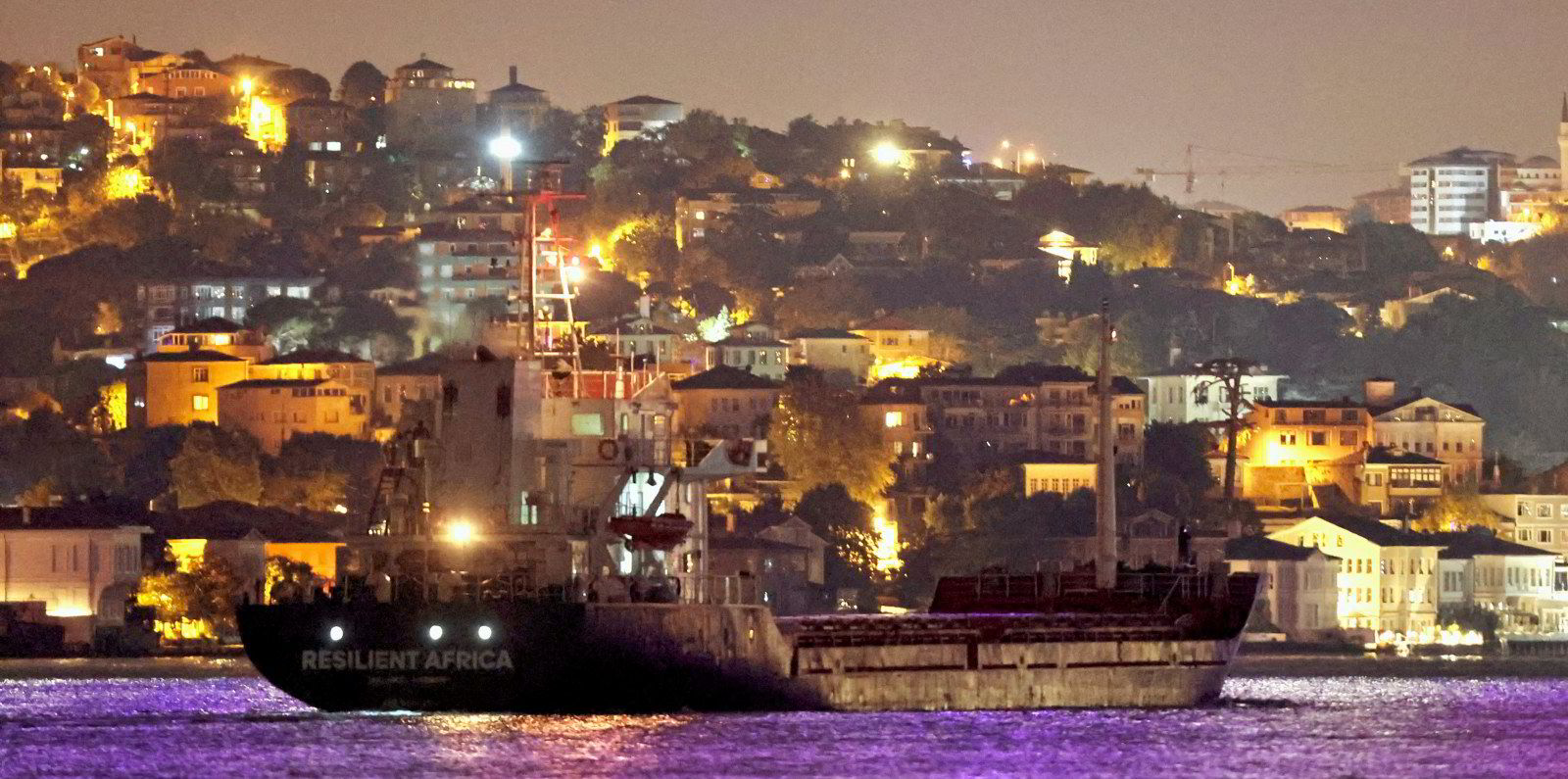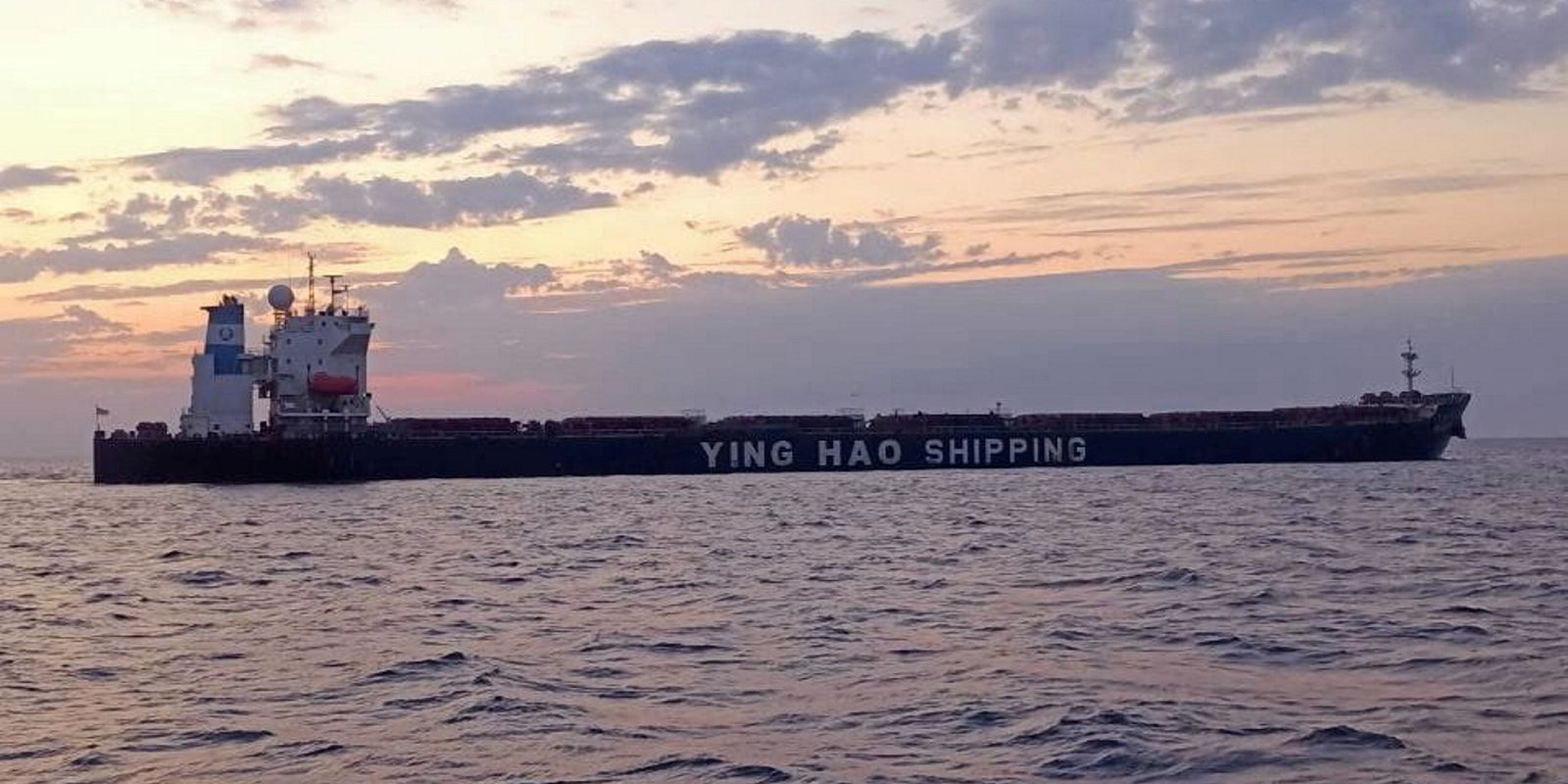Bulkers daring to visit Ukraine’s beleaguered deepsea ports are earning a multiple of what vessels usually make in less dangerous waters.
“While business concluded from Ukraine is mostly under wraps, it is understood that levels secured by the few people transacting right now are two to three times the level of non-Ukraine business,” broking sources with direct knowledge of the matter told TradeWinds.
According to the latest average market levels, that means a handysize could expect to earn more than $40,000 per day on a trip to any Ukrainian port north of the Danube. Market rumours are mentioning even higher numbers.
Vessels operating in the brisk grain trade out of Russian ports in the Black Sea are earning above market averages as well, but not nearly as much as in Ukraine, the broker said.
Fifteen bulkers have ventured into Ukraine’s Odesa, Chornomorsk and Yuzhnyy/Pivdennyi ports since late August, when the Kyiv government re-established a Black Sea grain corridor under its own protection — in the teeth of Russian warnings that it would consider any vessel in the area a potential military target.
The same corridor was used by five other vessels to escape from Ukraine, where they had been trapped since the war began 19 months ago.
More ships are in the pipeline.
Up to nine are believed to be preparing for the journey in the coming days or weeks. Even more will join them if talk materialises about Chinese importers buying 10 to 12 panamax cargoes of Ukrainian corn for November/December shipments.
What’s my cover?
It is not a trade for the faint-hearted.
Late in September, a Russian missile attack caused extensive damage to the Odesa port and possibly to some tugs docked there.
On 4 October, the UK government warned, citing its own intelligence, that Russia might use mines to target commercial ships in the corridor.
The few owners that have so far shrugged off all threats are from Turkey, the Middle East, China, Germany, Ukraine and Greece. The best known among them are Blumenthal JMK and Evalend Shipping.
Evalend principal Kriton Lendoudis is a known risk taker.
In the past, he has sent ships into war-torn Libya. After a daring, speculative newbuilding spree for large VLGCs recently, a broker remarked to TradeWinds that Lendoudis “seems to have big balls”.

Insurance is there, despite the risks.
TradeWinds reported on Wednesday that underwriters in London are actively quoting on war risk cover for ships heading to Ukraine’s Black Sea deepsea ports.
Brokers confirmed there has been a marked increase in enquiries from shipowners interested in participating in the trade.
They said that London underwriters are quoting between 2.5% and 3% of insured values for hull war risk cover for ships trading to the region. Slightly higher rates are being quoted for cargo cover.
The quotes are roughly in line with what ships trapped in Ukrainian ports paid at the war’s outbreak.
Today’s pricing marks a considerable discount on the rates of around 5% quoted before three ships successfully tested the water by sailing to Odesa and Chornomorsk and out two weeks ago.
Market talk is that some Turkish owners that helped break open the trade at the time may have ventured into Ukraine without any cover at all.
Given the risks of the journey, it is no surprise that the first 11 vessels that went into Ukraine recently are old, with an average age of about 24 years.
The same phenomenon occurred in the early days of the Black Sea Grain Initiative — the United Nations-led corridor that operated from August 2022 until Russia pulled the plug on it in July this year.
As long as owners were unsure how safe the initiative was, they were sending older vessels through the corridor. As the market became convinced that it was safe and operated smoothly, the average age of ships going through dropped considerably.
The same has started to happen in the new corridor, with the biggest and youngest vessel yet embarking on the journey. On 5 October, the 81,800-dwt Beaver (built 2017) was heading towards Chornomorsk. The ship is listed with Greece’s GMA Maritime under the management of Blumenthal Asia.






